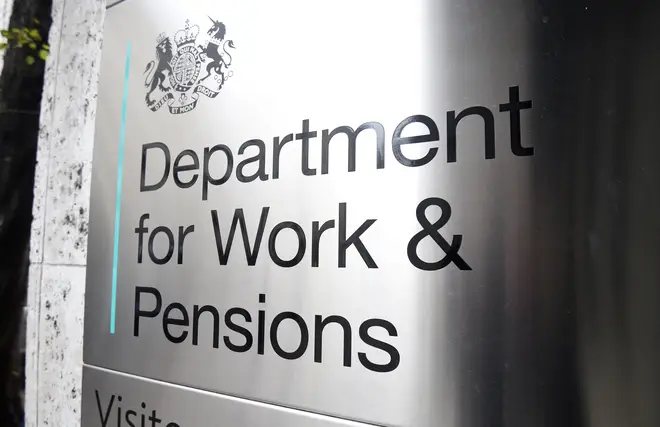
Rachel Johnson 7pm - 10pm
11 January 2020, 11:55

Almost 2,000 terminally ill people in Britain have died waiting for a promised government review of the benefits system, a charity has claimed.
Marie Curie claim that an average of 10 people a day die while waiting for a decision on their Personal Independence Payment claim over a five-year period.
The charity's estimate is based on figures from the Department for Work and Pensions, who promised a review of the system last July.
Charities found the current arrangement to be not fit for purpose in a damning parliamentary report, forcing the government to step in and act.
Then work and pensions secretary Amber Rudd said claimants near the end of their lives deserved "a fresh and honest evaluation" of the system.
She added that nobody should be suffering "unnecessary hardship" after charities told MPs the struggle to access benefits was making people's lives a "total misery."

The six-month rule, legally introduced 30 years ago, means terminally ill people who are expected to live longer than half-a-year miss out on having their benefits claims fast-tracked and simplified under special rules for terminal illness.
Someone who is terminally ill is defined by the government as being an individual whose death can be reasonably expected within six months.
This definition was dubbed "outdated, arbitrary and not based on clinical reality" by a report by the All-Party Parliamentary Group for Terminal Illness.
Marie Curie is now calling on Boris Johnson's new government to "find its heart" and scrap the six-month rule.
Matthew Reed, chief executive of Marie Curie, said: "The Government's own figures suggest that 10 people a day have died while waiting for PIP in the six months since the DWP announced a review.
"Tragically, we have not seen any notable progress and many more will no doubt be struggling to access other benefits such as Universal Credit.
"And while we have seen personnel changes at the DWP, it is now a new year, with a new Government which has a clear majority, and therefore, no excuse not to act fast to stop 10 more people dying every day without the support they need.
"It's time now to get this done."
Mr Reid said the law was set to be changed in Scotland this year which will help those with a terminal illness obtain "fast access to devolved benefits."
"The new Government should now find its heart and follow suit - dying people don't have another six months to wait," he added.
The six-month rule was introduced in 1990 to exempt terminally ill people from the six-month qualifying period for the Attendance Allowance.
Since then, it has been extended to new benefits including Universal Credit and Personal Independence Payment.
Jonathan Ellis, director of advocacy and change at the charity Hospice UK, said terminally ill people "are at the mercy of a callous benefits system that effectively puts process before people's needs."
He said: "It is completely unacceptable that many terminally ill people and their families are forced to endure hardship and emotional distress for months while they wait for financial support, and that in so many cases families do not receive this support until, tragically, it is too late.
"The current dysfunctional benefits system needs to be radically overhauled."
A DWP spokesman said: "We recognise how devastating dealing with a terminal illness can be, and the impact it can have on families. This evaluation of support for people nearing the end of life is an absolute priority for us.
"This vital work is well under way and we are working closely with medical professionals and charities like Motor Neurone Disease Association and Marie Curie.
"We are making positive changes and actively gathering all the relevant medical evidence needed to shape the proposals."